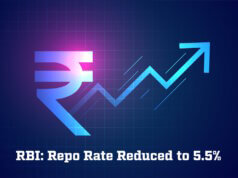 The Solar Energy Task Force of the Federation of the Indian Chambers of Commerce and Industry has recommended a host of measures for addressing the challenges being faced by solar power developers due to lack of suitable financing mechanisms and low cost financing alternatives as well as regulatory issues.
The Solar Energy Task Force of the Federation of the Indian Chambers of Commerce and Industry has recommended a host of measures for addressing the challenges being faced by solar power developers due to lack of suitable financing mechanisms and low cost financing alternatives as well as regulatory issues.
In a report released last month, the SETF emphasized that financing would be an important pillar for the success of solar energy in the country and needed to be addressed with a sense of urgency for achieving the objectives of Jawaharlal Nehru National Solar Mission.
“Solar energy projects today require large upfront investment and due to its higher prevailing costs have reasonably long payback periods,” the report titled ‘Financing Solar Energy’ said.
“Despite favourable policies and support being provided by the Central Government and the State Governments, lenders are reluctant to provide financing for solar power projects. Lenders are wary about off-taker risk with regard to a number of states given their financial health. Additionally, banks in India face structural challenges due to their sectoral exposure limits. Financing of solar projects falls within the power sector which also includes large thermal coal or gas based power plants. The large amount of credit extended to the fossil fuel based power sector has caused banks to reach their respective exposure limits thus limiting their appetite for solar and renewable energy projects,” it added.
In addition to banks reaching their exposure limit in the power sector and the deteriorating financial health of state utilities, several other challenges plague solar power financing. The reluctance of lenders to finance solar power projects stems from various factors. Considering that for enhancing participation from developers, solar power projects are fragmented in to small capacities as compared to traditional power plants, the transactions involved are not large. Lenders do not want to finance small transactions, and where finance is made available, the transaction costs shoot up. The perceived technology risk, lack of on-ground insolation data and evacuation-related issues also deter lenders. The financial viability of solar power projects get impacted to a significant extent because of variable interest rate since all investment is upfront and projects debt-funded.
In order to overcome the solar power financing challenges and increase the flow of funds to the sector, the FICCI SETF report seeks a collaborative approach among all stakeholders including the Ministry of New and Renewable Energy, Ministry of Power, Reserve Bank of India, the financing community and the industry. It recommends making renewable energy an independent sector, separate from power sector, as many banks have reached their sectoral exposure limits. It also calls for a solar energy fund, solar bonds, refinancing by pension/insurance funds, longer duration construction loans and priority sector status to improve liquidity. The other recommendations made in the report include lowering the cost of debt by eliminating tax on interest received by banks and relaxation of ECB norms and addressing the performance of state utilities and improving their fiscal health.
The FICCI SETF was set up in March 2010 with the launch of JNNSM to provide a platform for the solar energy sector to deliberate on policy and regulatory issues and advance interests of the sector at domestic and global platforms.











